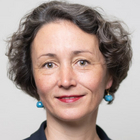Gender equity and development: Embracing an intersectional lens
Despite decades of engagement for gender equity, equal rights and opportunities for all genders has not been achieved - in fact, we are experiencing a global backlash against women’s rights and the very concept of gender and gender equity, which often go hand in hand with the criminalization of homosexuality and transgender identities. This points to the intersectional nature of gender, which means that gender-related discrimination is experienced differently depending on other social categories that gender overlaps with, such as sexuality, race, class, caste etc.
Gender-related research at IDOS ranges from concepts and methodologies originating from Gender and/or Feminist Studies, to critical reflections on the positionality of researchers who are themselves social actors and thus embedded in power relations.
In the context of a turn towards deliberate emancipatory development cooperation (sometimes labeled ‘feminist development policy’), IDOS researchers seek to move beyond merely naming discriminatory practices and structures towards dismantling the power relations that have created and perpetuate them. This requires intersectional analyses and a commitment to support the most marginalized communities as well as a concerted effort to link individual narratives on sexual politics to collective contestations of hierarchy and power.
Team
Publications
Local feminist perspectives as transformation levers for greater gender equality: synthesis study
Götze, Jacqueline / Stephan Klingebiel / Maryam Khalid (2025)
Discussion Paper (9/2025)
Local feminist perspectives as transformative levers: women’s health and climate action in India
Sengupta, Sreerupa / Divya Singhal / Ananya Chakraborty (2025)
Discussion Paper (8/2025)
Local feminist perspectives as transformation levers for sustainable development in Ukraine in the context of ongoing defence
Strelnyk, Olena / Liudmyla Yuzva / Tamara Zlobina (2025)
Discussion Paper (7/2025)
Feminists’ perspectives as transformative levers in Ghana
Ohemeng, Fidelia N. A. / Deda Ogum / Deborah Tayo Akakpo / Dorcas Coker-Appiah (2025)
Discussion Paper (6/2025)
Intersecting constraints: exploring labour market barriers for urban women in Sub-Sahara Africa
Stöcker, Alexander (2025)
Discussion Paper (5/2025)
Beware the backlash: Feminist development policy at the crossroads
Götze, Jacqueline / Maryam Khalid / Tina Zintl (2025)
The Current Column of 6 March 2025
Ethics and equity: addressing violations of the Belmont Report principles for research staff
Kuhnt, Jana / Lennart Kaplan / Ana Garcia-Hernandez / Julia Leininger / Janina I. Steinert (2025)
in: World Development Perspectives 37, 100662
Economic development and barriers to (decent) work for women in SSA and MENA
Stöcker, Alexander / Tina Zintl (2024)
Discussion Paper (16/2024)
Transnational intersectionality at sea: gender, appearance, ethnicity, age, and marine knowledge production
Hägele, Ramona / Anna-Katharina Hornidge (2024)
in: Ocean and Society 2, article 8737
Exclusionary refugee protection regime, colonial others and gender dualities
Jaji, Rose / Ulrike Krause (2024)
in: Jane Freedman / Glenda Santana de Andrade (eds.) Research Handbook on Asylum and Refugee Policy, Cheltenham: Edward Elgar Publishing, 280–290
Why attaining gender equality is critical for climate action
Sen, Amrita / Aparajita Banerjee (2024)
The Current Column of 3 June 2024
Gender and migration: trends, gaps and urgent action
Bauloz, Celine / Margaret Walton-Roberts / Rose Jaji / Taehoon Lee (2024)
in: Marie McAuliffe / Linda Adhiambo Oucho (eds.), World Migration Report 2024, Geneva: International Organisation for Migration, 165-195
Improving gender-responsive innovation: adoption among smallholder farmers in Africa
Asimeng, Theodore / Peter Asare-Nuamah / David Anaafo / Tina Beuchelt / Aiveen Donelly / Benjamin Abugri (2024)
in: Sustainable landmanagement Africa Briefing Series 3/2024
Why transportation should work for women in Africa
Asimeng, Theodore / Pooja Balasubramanian (2024)
The Current Column of 6 March 2024
Gender differences in multidimensional poverty in low- and middle-income countries: An assessment based on individual poverty indices
Burchi, Francesco / Daniele Malerba (2024)
published on ssrn.com, 10.01.2024
Are women poorer? A cross-country analysis of gender differentials in multidimensional poverty
Burchi, Francesco / Daniele Malerba (2023)
in: Udaya R. Wagle (ed.), Research Handbook on Poverty and Inequality, Cheltenham: Edward Elgar Publishing, 103-117
The gendered nature of poverty: data, evidence and policy recommendations
Burchi, Francesco / Daniele Malerba (2023)
Policy Brief 24/2023
Feminist development policy for more inclusive social contracts
Zintl, Tina (2023)
in: D+C (7/2023), 32-33
How digitalisation and technology empower women working on the ocean and along the Amazon River
Hägele,Ramona / Juliana Arcoverde Mansur (2023)
The Current Column of 19 June 2023
The implementation of the G7 and G20 gender equality goals in Germany. Update 2023
Berger, Axel / Sören Hilbrich / Gabriele Köhler / Yannik Sudermann (2023)
Berlin: Deutscher Frauenrat
Refugee-led organisations and intersectionality: feminist development policy in the lives of refugees
Motalebi, Nasim / Charles Martin-Shields (2023)
Policy Brief 5/2023
Approaches for the implementation of a feminist development policy
Roll, Michael (2023)
The Current Column of 6 March 2023
Exklusives Flüchtlingsschutzregime, koloniale „Andere“ und Geschlechterdichotomien
Jaji, Rose / Ulrike Krause (2022)
in: Zeitschrift für Friedens- und Konfliktforschung, first published 29.12.2022
Ten recommendations for Germany’s feminist development policy
Friesen, Ina / Alma Wisskirchen (2022)
Discussion Paper 17/2022
Feminist research perspectives in peace and conflict studies and consultancy work
Ruppel, Samantha / Alena Sander (2022)
published on blog.prif.org, 25.05.2022
Drei Eckpfeiler für die feministische Entwicklungspolitik Deutschlands
Friesen, Ina / Alma Wisskirchen (2022)
Die aktuelle Kolumne vom 02.05.2022
Transnational migration and reconfiguration of the family in Zimbabwe
Jaji, Rose (2022)
in: Revista Interdisciplinar da Mobilidade Humana (REMHU), 30 (66), 227-242
Community effects of cash-for-work programmes in Jordan: supporting social cohesion, more equitable gender roles and local economic development in contexts of flight and migration
Loewe, Markus / Tina Zintl / Jörn Fritzenkötter / Verena Gantner / Regina Kaltenbach / Lena Pohl (2020)
Studies 103 (2020)
Subjective returns to education: rational expectations of disadvantaged groups in India
Balasubramanian, Pooja (2020)
Wider University Working Paper 144, published August 2020
Women’s political representation and educational attainments: a district-level analysis in India
Burchi, Francesco / Karan Singh (2020)
in: Journal of South Asian Development 15(1), 7-33
Multidimensional poverty trends and horizontal inequalities: new insights from the G-CSPI database
Burchi, Francesco / Daniele Malerba / Nicole Rippin (2019)
Brasilia: The International Policy Centre for Inclusive Growth (One Pager 434) (Online)
Un-gendering the Ocean: why women matter in ocean governance for sustainability
Gissi, Elena / Michelle Portmann / Anna-Katharina Hornidge (2018)
in: Marine Policy 94 (2018), 215-219
Civil society engagement in regional governance: a network analysis in Southern Africa
Hulse, Merran / Lisa Gürth / Helena Kavsek / Verena Stauber / Daniel Wegner / Jan Weinreich (2018)
Discussion Paper 30/2018
Projects
Local feminist perspectives as transformation levers for greater gender equality
Gender inequality and social policies
Effekte der Cash-for-Work-Programme für syrische Flüchtlinge in Jordanien
Measuring and Assessing Multidimensional Poverty across the world
Events
Conference
Final synthesis conference “Local feminist perspectives as transformation levers for greater gender equality”
Berlin, 19 March 2025
International workshop
Gender-responsive social protection and employment policies in low and middle income countries
Bonn, 21 until 22 November 2024
Workshop
Local feminist perspectives as transformation levers
Bonn, 23.10.2024
Webinar
Gender and Sanitation: Why it matters for women and girls
Online, 30.04.2024
Kick-Off-Workshop #2
Local feminist perspectives for transformative change
Online, 18.03.2024
Kick-Off-Workshop #1
Local feminist perspectives as a lever for gender equality
Online, 31.01.2024
Feminist Development Policy
Highlight
Beware the backlash: Feminist development policy at the crossroads
Götze, Jacqueline / Maryam Khalid / Tina Zintl (2025)
The Current Column of 6 March 2025
Highlight
Improving gender-responsive innovation: adoption among smallholder farmers in Africa
Asimeng, Theodore / Peter Asare-Nuamah / David Anaafo / Tina Beuchelt / Aiveen Donelly / Benjamin Abugri (2024)
in: Sustainable landmanagement Africa Briefing Series 3/2024
Highlight
The implementation of the G7 and G20 gender equality goals in Germany. Update 2023
Berger, Axel / Sören Hilbrich / Gabriele Köhler / Yannik Sudermann (2023)
Berlin: Deutscher Frauenrat
Highlight
Are women poorer? A cross-country analysis of gender differentials in multidimensional poverty
Burchi, Francesco / Daniele Malerba (2023)
in: Udaya R. Wagle (ed.), Research Handbook on Poverty and Inequality, Cheltenham: Edward Elgar Publishing, 103-117
Diversity Charter
IDOS is a signatory of the Diversity Charter which promotes the recognition, appreciation and integration of diversity in business culture.


















![[Translate to English:] Cover: The implementation of the G7 and G20 gender equality goals in Germany. Update 2023 Berger, Axel / Sören Hilbrich / Gabriele Köhler / Yannik Sudermann Externe Publikationen (2023) Berlin: Deutscher Frauenrat](/fileadmin/_processed_/4/c/csm_The-Implementation-of-the-G7-and-G20-Gender-Equality-Goals-in-Germany_Update-2023_ab8bcf8193.jpg)

